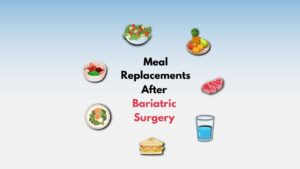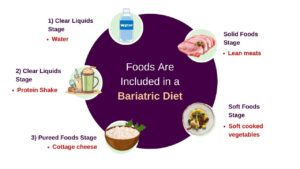
Vidhi Dave
Bariatric Dietician & Content Writer
Obesity and Inflammation: A Vicious Cycle

In the internet era, we are constantly attacked with diet trends, workout regimens, and promises of quick remedies to remove those excess pounds. For good reason, many people are obsessed with leading a better lifestyle. Obesity, the most prominent issue in the room, stands big in our lives, affecting not just our physical health but also our whole quality of life. It is a worldwide epidemic that shows no signs of abating. However, despite the aesthetic and surface-level problems of obesity, a much more deadly threat resides under the surface.
Obesity and inflammation may appear unconnected, yet they are inseparable in a devastating and frequently neglected combination.
What is Inflammation?
Inflammation is a word you may have heard before, but what exactly does it mean? It is an immune system response to whatever the body views as toxic, and it “is characterized by swelling, pain, redness, and warmth.” It can be caused by a variety of factors, including infection, autoimmune illness, damage,” and some toxins.
Your immune system’s migration of white blood cells to the injured location to combat infection and aid in damage healing triggers inflammation.
Types of Inflammation
Acute inflammation
Acute inflammation is the body’s reaction to a quick injury, such as cutting your finger. Your body sends inflammatory cells to the wound to mend it. These cells initiate the healing procedure.
Chronic inflammation
Chronic inflammation occurs when your body continues to send inflammatory cells even when there is no external threat. In rheumatoid arthritis, for example, inflammatory cells and chemicals attack joint tissues, causing an inflammation that comes and goes and can cause serious damage to joints, including pain and deformity.
How is it detected ?
While certain types of inflammation are obvious, such as swollen joints or pus surrounding a cut, doctors can detect the presence of an inflammatory process with blood tests such as the erythrocyte sedimentation rate (ESR) and C-reactive protein tests. The ESR examines how rapidly red blood cells settle at the bottom of a test tube; the faster red blood cells settle, the greater the chance of inflammation. High levels of C-reactive protein in the blood are a sign of inflammation.
Relation between Obesity and Inflammation
When you have too much body fat, particularly around your stomach, it can cause persistent, low-level inflammation in your body. This occurs because fat cells emit chemicals that stimulate your immune system to engage even when there is no damage or illness to combat. This persistent inflammation is dangerous and can affect many different sections of your body.
Obesity has been connected to:
Heart disease
Stroke
Type 2 diabetes
Certain cancers
Systemic Inflammation (SCI) can cause a variety of disorders, including:
Cardiovascular disease
Diabetes
Autoimmune disorders
Neurodegenerative diseases
Metaflammation, the metabolic inflammatory condition associated with obesity, leads directly to insulin resistance, metabolic syndrome, and type 2 diabetes.
Weight reduction and calorie restriction have been found to reduce inflammation and promote insulin sensitivity in patients who have been medically recommended to shed excess weight.
Foods that fight inflammation
Omega-3 and omega-6 fatty acids help reduce inflammation by restoring lipid equilibrium in the body. Polyphenols in other meals may also help to reduce inflammation.
Inflammatory-fighting foods include:
Extra virgin olive oil
Spinach, kale, and collards are examples of green leafy vegetables.
Almonds and walnuts are examples of nuts.
Salmon, mackerel, tuna, and sardines are examples of fatty fish.
Strawberries, blueberries, cherries, and oranges are examples of fruits.
Following foods may cause inflammation:
White bread and pastries are examples of refined carbs.
Fried dishes such as French fries
Soft drinks and other sugary drinks
Obesity Should Be Treated Like Any Other Chronic Medical Condition
When obesity has a negative impact on one’s health, it is called a chronic medical disease. Exercise and a well-balanced diet of complete, unprocessed foods can be part of the treatment plan for many diseases. The crucial thing to remember is that minor improvements in everyday behavior can lead to long-term good changes.
Here are a few techniques that will help you succeed:
Make friends. Take a walk with a buddy or enroll in a fitness class. Take a walk outside.
Surround yourself with people who support your weight reduction and wellness objectives.
Eating more plant-based meals can help reduce inflammation and enhance nutritional intake without raising calorie consumption.
Focus on adding color to your plate from fruits and vegetables as a way of getting a variety of nutrients and anti-inflammatory benefits.
Make activity a part of your everyday routine. Exercise does not have to take place exclusively at the gym. Park further away from the grocery shop. Take the stairs. Plant a garden.
Sleep. Inadequate sleep quality and quantity can stress your system and have been shown to increase weight gain and inflammation.
Excess stress hormones have been linked to both weight gain and inflammation. Having a mindfulness practice, doing yoga, or meditating can help to keep your hormones in check.
Understanding how to maintain a balanced diet and an active lifestyle can help persons with these medical conditions help to break the cycle of inflammation and obesity. Breaking the obesity-inflammation loop is challenging, but not impossible.
Aastha Bariatrics is the center of excellence. Center of Excellence in Bariatric & Metabolic Surgery certification is awarded to a facility and its associated surgeons who have successfully completed the designation process of delivering high quality pre-operative and long term follow-up care.







